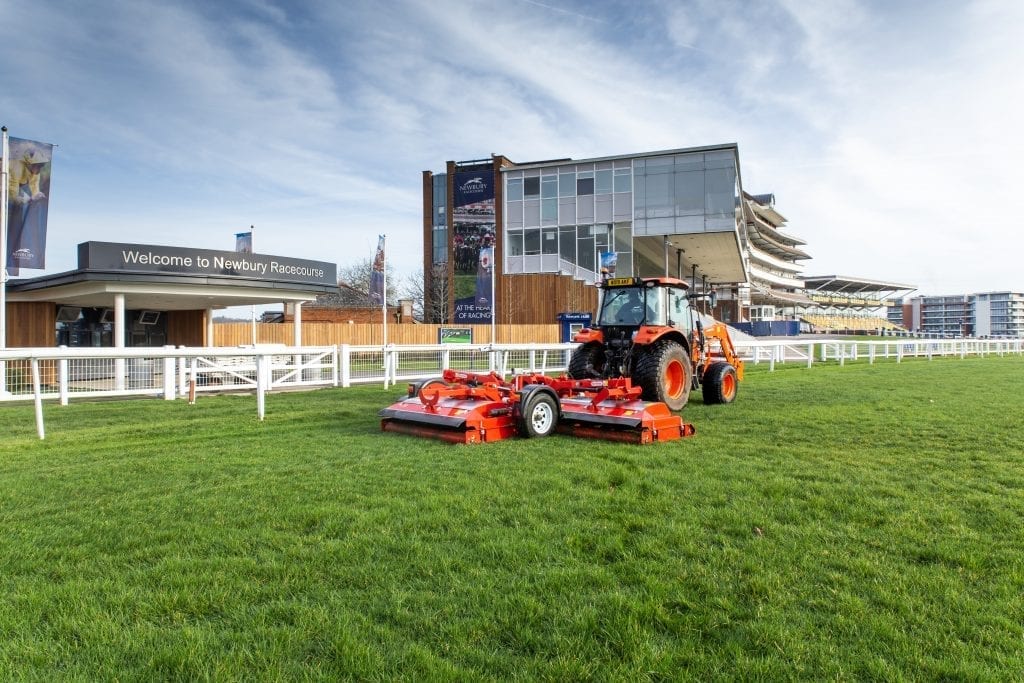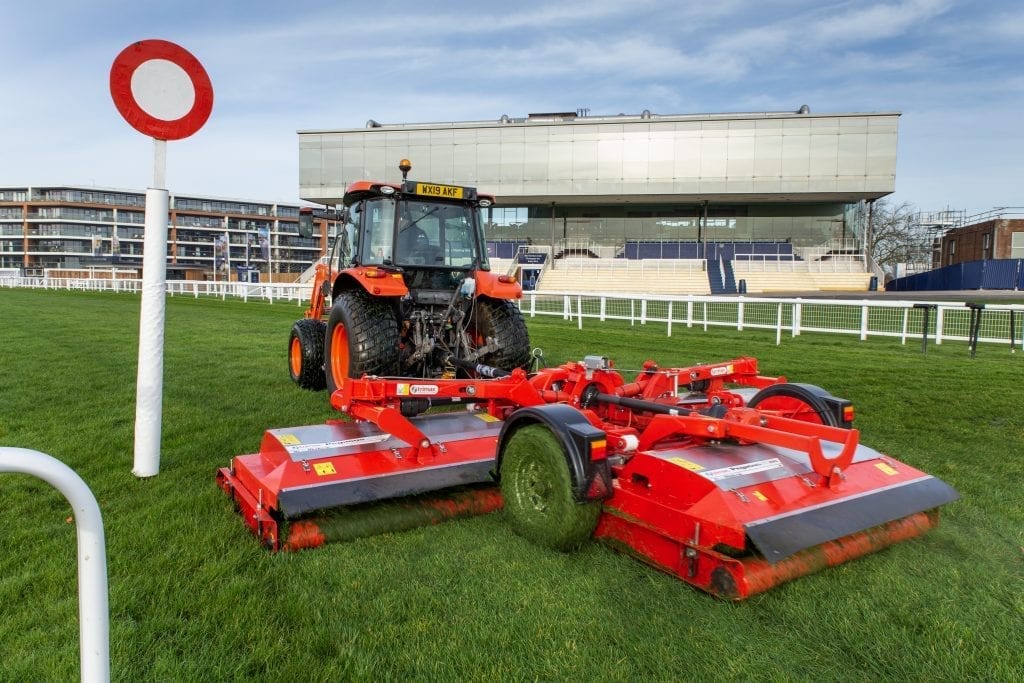
In the world of British horse racing, Newbury’s impressive course is undoubtedly a favourite. Owners, trainers, jockeys and others right across the industry all respect the Berkshire circuit that so readily hosts both flat and national hunt racing.
The sheer quality of the racing on offer depends upon a variety of interlaced factors, but none are more important than the turf itself and the way in which it is maintained. It certainly helps that the course sits on free-draining sandy loam with a thick bed of natural gravel just beneath, but the surface still needs professional skills to maintain a good sward 12 months of the year.
Irrigation, fertilising, scarifying and mowing each have a part to play, all in the hands of a skilled team of nine groundsmen using carefully selected machinery – notably a Trimax Pegasus mower from Lister Wilder’s Reading depot, which makes light work of the grass cutting.
The challenge is a big one because Newbury’s two race tracks add up to some 22 hectares of grass – and that’s just the part the horses run on. Unlike a domestic lawn, it needs to be cut in winter as well as summer to maintain the thickness of the sward. To cover that area of ground to that intensity the Pegasus S4 needs to be out there at work just about every day. It runs behind a 74hp Kubota M4072.
The man with ultimate responsibility for the quality of the ground at Newbury is Clerk of the Course Keith Ottesen. He took over just over a year ago from Richard Osgood who had devoted no fewer that 40 years to building Newbury’s reputation for racing excellence. Richard’s family association with the course stretched all the way back to 1919 and involved both his father and great uncle. The latter fought off Second World War pressure from the then occupying US army to chop up the grandstand floorboards for firewood!
“Lister Wilder have provided us with a first class service on the sourcing and installation of the Pegasus and are always very responsive to our needs.”
Clerk of the Course Keith Ottesen
Keith’s pedigree in the racing business is impressive. He has performed the Clerk of the Course role for a whole succession of courses since 2003 and has also worked extensively in horse training and breeding. In his eyes, owners, trainers, jockeys and the wider industry are his customers. In satisfying their needs he also has to ensure that his course complies with its licence from the British Horseracing Authority.
“The magic of Newbury is that it’s one of the biggest tracks in the country in terms of its length and circumference,” he says. “On the round course for jumping, it is one and three-quarter miles and it’s wide with long sweeping bends, so horses don’t get unbalanced when they quicken up for jumps. For flat racing, we have the benefit of a straight mile, which is a dream for jockeys because they can set a nice even tempo.”
But Keith stresses that the course’s trump card rests with its well-drained and superbly maintained turf. “The people who have gone before me have always maintained it superbly,” he says. “It is incredibly important from both a racing and a business point of view that the track is well maintained because it keeps people coming through the gates, attracts sponsors and fills the hospitality boxes. The health of the business is linked to the quality of the racing that we can put on, and that in turn depends on the quality of the racing surface.”
The Pegasus has a big part to play in not just maintaining the standard of the racing surface but opening up operator time for other jobs. “We have been able to maintain the quality of the cut, but the fact that grass cutting process has been speeded up means that we can tackle other jobs,” says Keith. “It’s reliability is crucial to us, as is the fact that routine maintenance and adjustments to cutting height are quick and easy. Lister Wilder have provided us with a first class service on the sourcing and installation of the Pegasus and are always very responsive to our needs.”
The fact that trainers put their faith in the Newbury turf helps the elite dual-purpose track to maintain its standing in staging trials early in the racing season for classics like Newmarket’s 1,000 and 2,000 Guineas and for the Epsom Derby. Punters in the know also enthuse over the fact that two-year-olds considered by trainers to have high potential often come to Newbury for testing.
